 Petzlover
Petzlover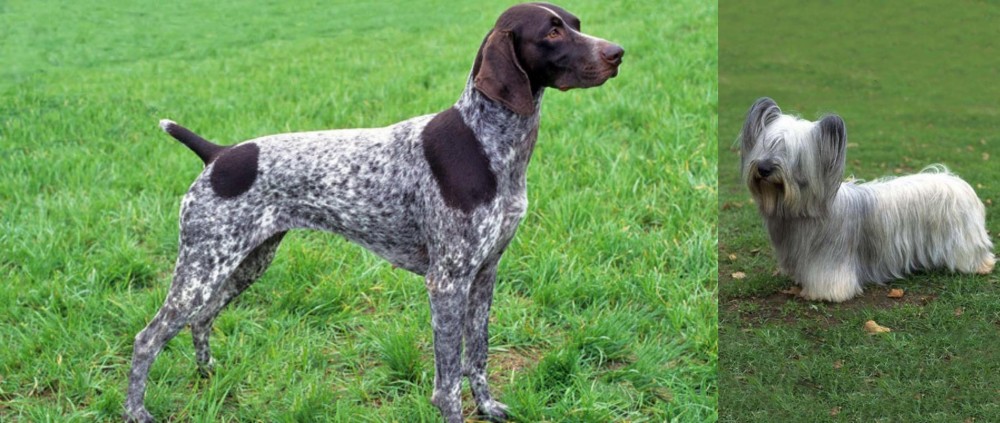 German Shorthaired Pointer is originated from Germany but Skye Terrier is originated from United Kingdom. German Shorthaired Pointer may grow 37 cm / 15 inches higher than Skye Terrier. German Shorthaired Pointer may weigh 14 kg / 31 pounds more than Skye Terrier. Both German Shorthaired Pointer and Skye Terrier has almost same life span. German Shorthaired Pointer may have more litter size than Skye Terrier. German Shorthaired Pointer requires Low Maintenance. But Skye Terrier requires Moderate Maintenance
German Shorthaired Pointer is originated from Germany but Skye Terrier is originated from United Kingdom. German Shorthaired Pointer may grow 37 cm / 15 inches higher than Skye Terrier. German Shorthaired Pointer may weigh 14 kg / 31 pounds more than Skye Terrier. Both German Shorthaired Pointer and Skye Terrier has almost same life span. German Shorthaired Pointer may have more litter size than Skye Terrier. German Shorthaired Pointer requires Low Maintenance. But Skye Terrier requires Moderate Maintenance
 Being a member of the Sporting Group, the German Shorthaired Pointer is a dog which was developed in the 19th century in Germany, and specifically for hunting. Hunters wanted a dog who could hunt all types of game and in all types of terrain.
Being a member of the Sporting Group, the German Shorthaired Pointer is a dog which was developed in the 19th century in Germany, and specifically for hunting. Hunters wanted a dog who could hunt all types of game and in all types of terrain.
There are quite a few different theories that exist regarding the origin of the German Shorthaired Pointer, but most experts believe that the breed came from a mix of old Spanish pointer and traditional continental pointers with further crossings of German Bloodhound and French Gascon to enhance scenting abilities.
The dogs popularity flourished in Europe and in 1891 the Klub Kurzhaar was founded to maintain the guidelines for this new and beautiful sporting dog.
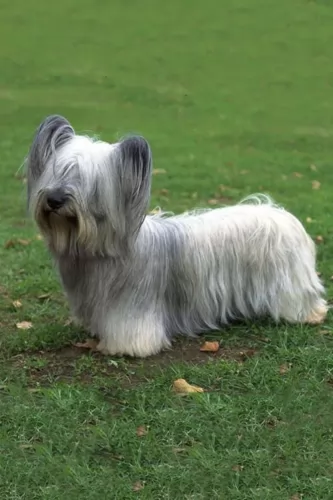 The Skye Terrier is a hardy dog breed and is actually considered to be an endangered native dog breed in the United Kingdom.
The Skye Terrier is a hardy dog breed and is actually considered to be an endangered native dog breed in the United Kingdom.
They were found on the Isle of Skye, although there is some confusion about its history. They were used long ago to hunt but these days they are essentially companion dogs.
They found their way to America and the Skye Terrier Club of America was founded in 1938. The American Kennel Club recognized the breed in 1887.
 Athletic, muscular and sleek, the medium to large sized German Shorthaired Pointer is at home on land and water. He stands between 53 to 63cm in height and weighs roughly between 20 – 32kg.
Athletic, muscular and sleek, the medium to large sized German Shorthaired Pointer is at home on land and water. He stands between 53 to 63cm in height and weighs roughly between 20 – 32kg.
The eyes are brown, the ears are fairly long, they are floppy and set high on the head. The tail is always docked to a particular length and is held straight out from the body so that it actually forms a line with the entire body and the head.
The dog has a short coat which is essentially a combination of liver and white speckles or dappling.
A whole lot of factors come into play when looking at the temperament of a dog. The kind of owners the dog has can have a huge affect on the way he turns out. Nonetheless every dog, including the German Shorthaired Pointer will require training and socialization to become obedient and relaxed around strangers and other pets.
The German Shorthaired Pointer is an intelligent, confident, bold, affectionate dog that wants to please his owners and he is easy to train. He is good with children too, just loving all interaction with his human family.
He is an energetic dog and will require plenty of exercising to avoid him becoming bored, frustrated and destructive.
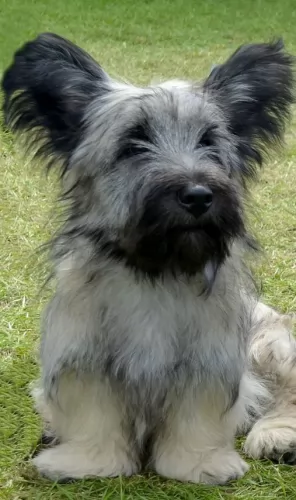 The Skye Terrier is a medium-sized dog standing at between 23 and 26cm in height and weighing between 12 and 18kg. The legs are short and sturdy. He is double coated with the top coat being straight and hard and forming a beard around the face area. The coat can be fawn, and in various shades of grey which are sometimes even black. The ears of the dog are medium sized and erect.
The Skye Terrier is a medium-sized dog standing at between 23 and 26cm in height and weighing between 12 and 18kg. The legs are short and sturdy. He is double coated with the top coat being straight and hard and forming a beard around the face area. The coat can be fawn, and in various shades of grey which are sometimes even black. The ears of the dog are medium sized and erect.
The Skye Terrier has always been a hunting dog and he enjoys quite a bit of exercise – walks, ball games as well as indoor games. Small though he may be, he is strong willed with a mind of his own and will benefit from being trained and socialized.
This is also necessary as he has a fairly reserved nature. He gets on well with children and makes an excellent family pet but he is ready to take on smaller pets in the home. He will bark when confronting strangers and makes an excellent watchdog too.
He is able to adapt well into life in the city or the countryside. He isn’t a dog to be left outside day after day and will just die of boredom, frustration and loneliness.
 As an intelligent hunting dog, the German Shorthaired Pointer is also a loving family companion and he just loves spending time outdoors with his human family.
As an intelligent hunting dog, the German Shorthaired Pointer is also a loving family companion and he just loves spending time outdoors with his human family.
He is pretty much an all-rounder – playful, energetic, a good watchdog and a loving and devoted family friend.
For an active, outdoor kind of family, include the German Shorthaired Pointer in all your activities and you’re going to ensure that you have a most wonderful 4-legged friend.
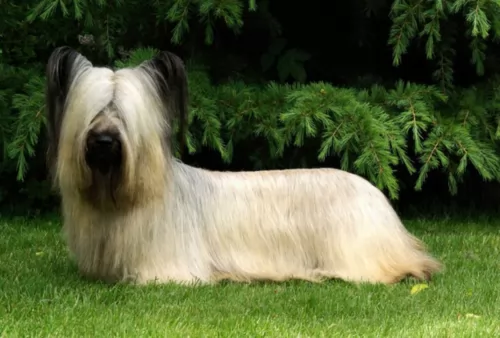 Give the Skye Terrier the attention he wants and he will reward you with his loving companionship.
Give the Skye Terrier the attention he wants and he will reward you with his loving companionship.
He loves the entire family but is best suited to homes where children have been taught to be kind to animals and to treat them with respect.
He has moderate energy levels and will expect you to give him a fair amount of exercise. The Skye Terrier can make an excellent companion for you and your family.
 Most German Shorthaired Pointers are healthy dogs, but even so, just like with any other dog breed, they can be subject to some hereditary disorders as well as some of the other common dog illnesses there are -
Most German Shorthaired Pointers are healthy dogs, but even so, just like with any other dog breed, they can be subject to some hereditary disorders as well as some of the other common dog illnesses there are -
Dogs are such devoted family members that you just want to give in to them and pop the chocolate treats you love into their mouths. But dog’s can’t eat chocolate! Just one piece can affect a small dog. Symptoms of chocolate poisoning include diarrhea,vomiting, panting and shaking and even worse, a heart attack. If your dog has got hold of some chocolate, get him to the vet immediately.
Your German Shorthaired Pointer, as a puppy, should have his puppy vaccines. If your dog has this terrible disease, he will be lethargic, have diarrhea and almost seem out of it. Survival isn’t always guaranteed and the best way to avoid this killer disease, is to ensure your puppies vaccinations are up to date.
Check your pet for Bloat or an enlarged stomach which can twist because of trapped gas. This can be deadly for your pet. Get him immediately to the vet. He’ll be restless, lethargic and trying to vomit.
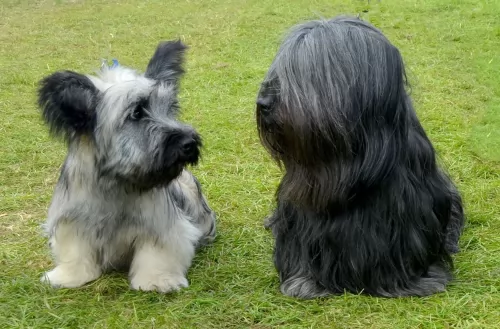 The Skye Terrier is a healthy dog breed. Perhaps the only issue that could be a problem with him is orthopedic problems. He is an achondroplastic dog, meaning a large body on small legs.
The Skye Terrier is a healthy dog breed. Perhaps the only issue that could be a problem with him is orthopedic problems. He is an achondroplastic dog, meaning a large body on small legs.
He could develop spinal problems if he were allowed to constantly be jumping off beds and high chairs.
Orthopedic problems affect the bones, muscles and joints and can actually be debilitating. Orthopedic conditions can be ligament tears or hip dysplasia for instance, accompanied by arthritis.
You’ll notice your dog has an abnormal way of walking or running, inability to get up once lying down and he may have arthritis and pain.Be careful because obesity can trigger problems with the joints and bones.
 The German Shorthaired Pointer isn’t a heavy shedder. He has a short coat which requires brushing at least twice a week to remove loose hairs and keep it shiny and sleek.
The German Shorthaired Pointer isn’t a heavy shedder. He has a short coat which requires brushing at least twice a week to remove loose hairs and keep it shiny and sleek.
Also check in- and outside the ears, clip his nails and brush his teeth 2 or 3 times a week.
Only the highest grade kibble will do. Mix in some of your own home-made cooked brown rice, vegetables and chicken from time to time and also ensure your pet gets in some raw meat as well. Cool, fresh water should be constantly available.
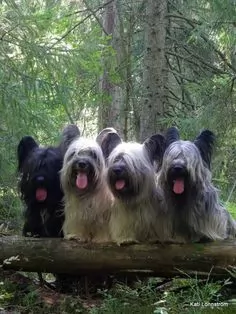 ● The coat of the Skye Terrier is long and silky and will most certainly require brushing every day if you keep the hair long. Such silky hair can easily become matted.
● The coat of the Skye Terrier is long and silky and will most certainly require brushing every day if you keep the hair long. Such silky hair can easily become matted.
● Little dogs like this will need their teeth being checked regularly. You can even try to buy special pet toothpaste and toothbrush and brush his teeth yourself. If you prefer, a professional dog groomer can do this for you and at the same time trim his nails and check his ears and clean the insides of the ears too to avoid infection.
● Provide him with top quality food as the quality of the dog food you buy makes a huge difference to his health and longevity. He is a small dog and there are some excellent commercially manufactured dog foods specially made for small, energetic dogs.
Try to include some home-made food for him which can be simply mixed into the dry kibble twice a week. Boiled chicken, brown rice or pasta and spinach, sweet potatoes and carrots is super tasty and nutritious. Ensure there is always a bowl of fresh, cool water within his reach.
● Keep his vaccines up to date against some deadly canine diseases, and get him to the vet when he shows signs of illness.